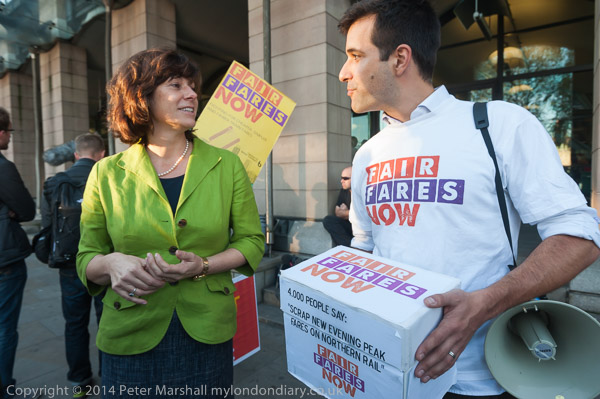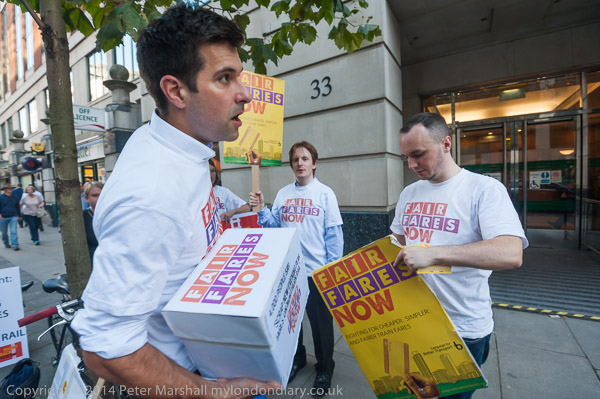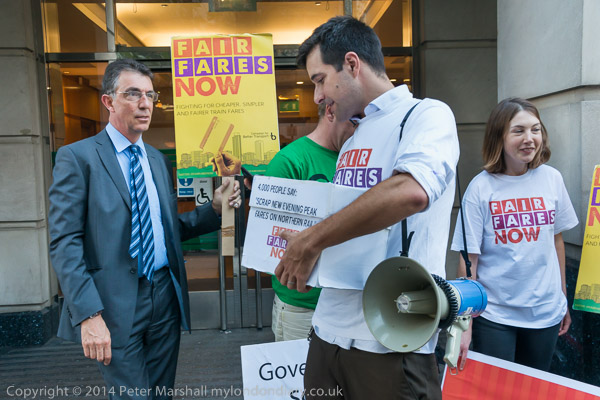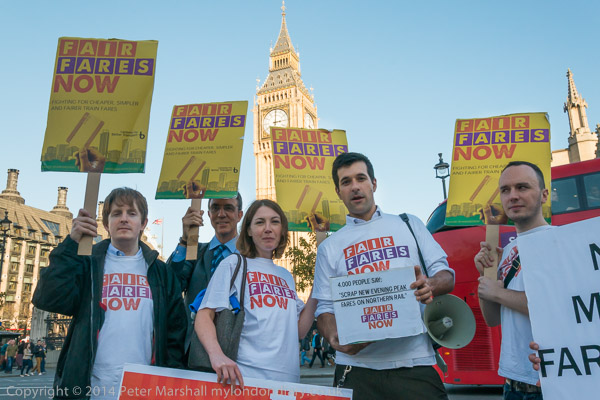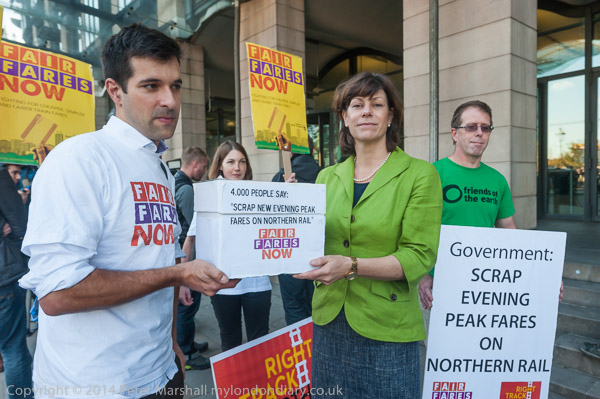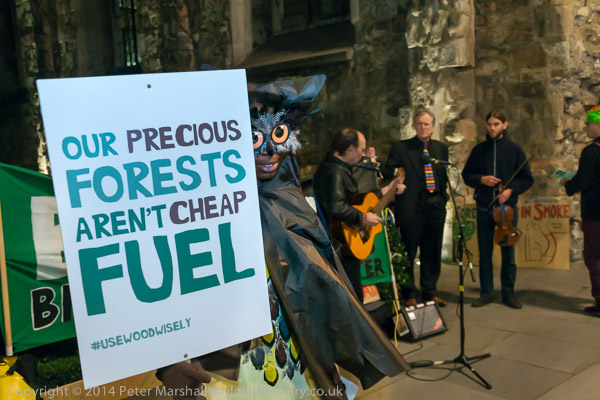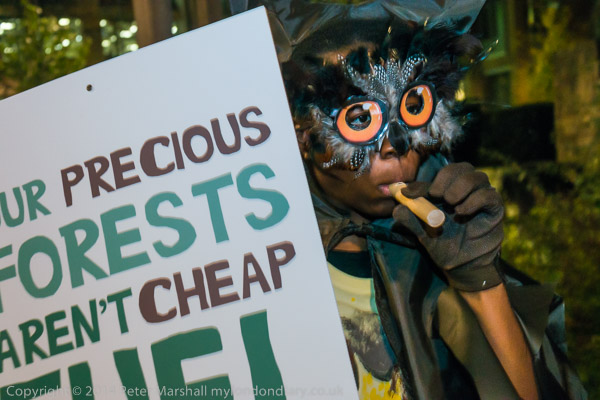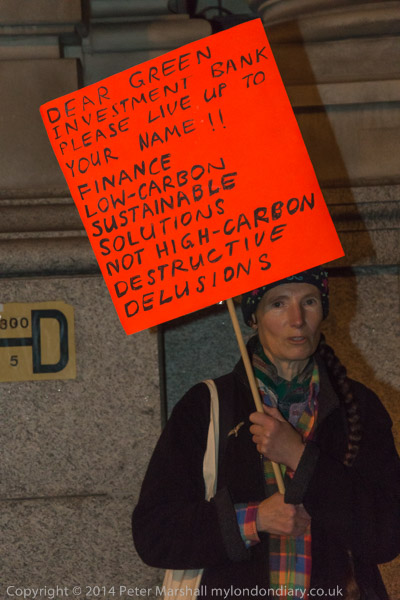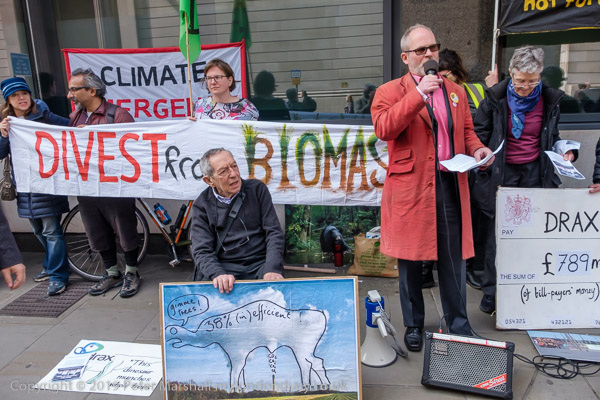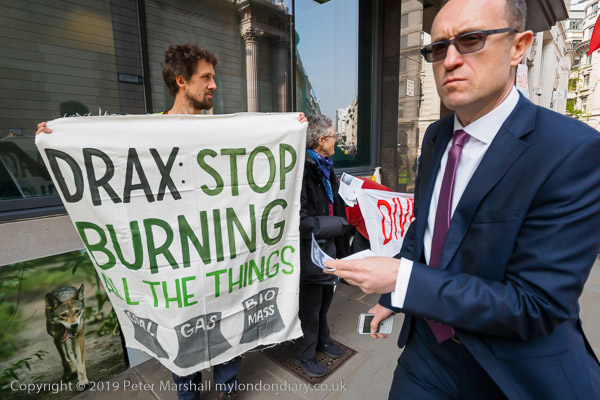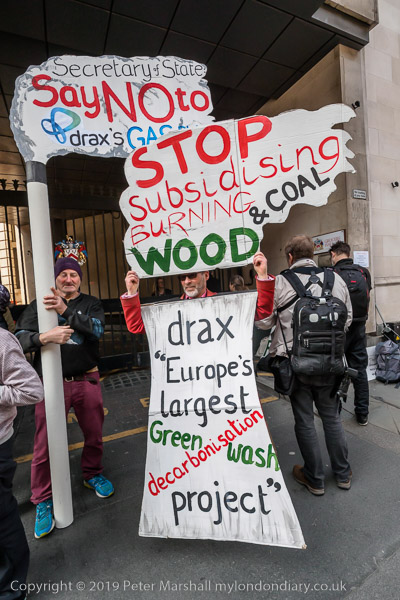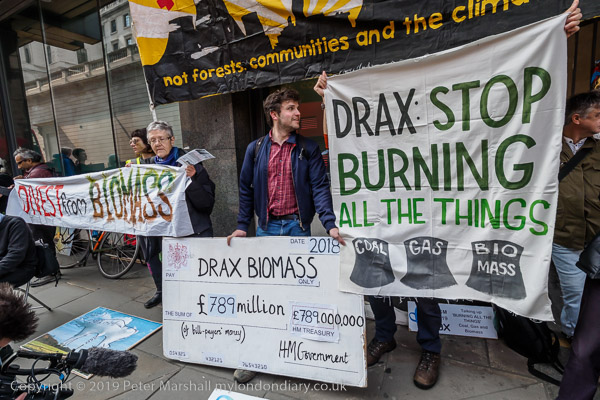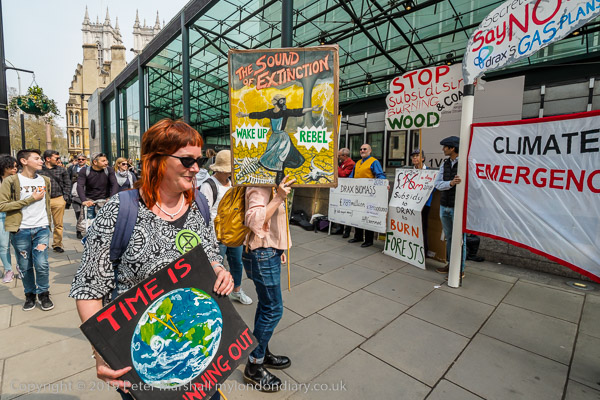Axe the Draxosaurus – On Wedesday 20th April 2016 environmental activists protested outside the AGM of Drax Plc at Grocer’s Hall next to the Bank of England in the heart of the City of London. Drax power station near Selby in Yorkshire used to be the UK’s biggest coal-fired power station, but since 2012 has become the world’s biggest wood-burning plant, and the company Drax Plc has become the second largest producer of wood pellets in the world
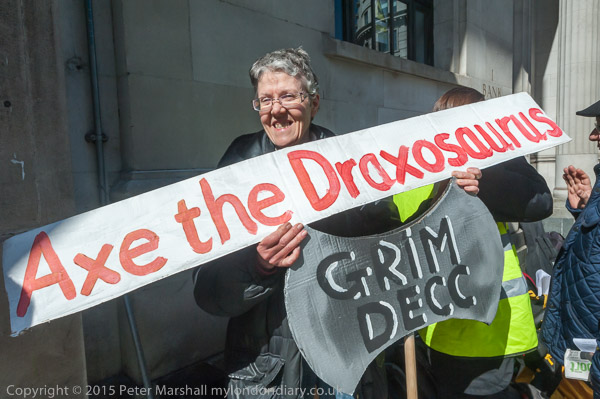
Drax power station now emits more CO2 than any other plant in the UK, and it does so with the aid of a huge subsidy from our UK electricity bills, almost £1 billion in 2021.
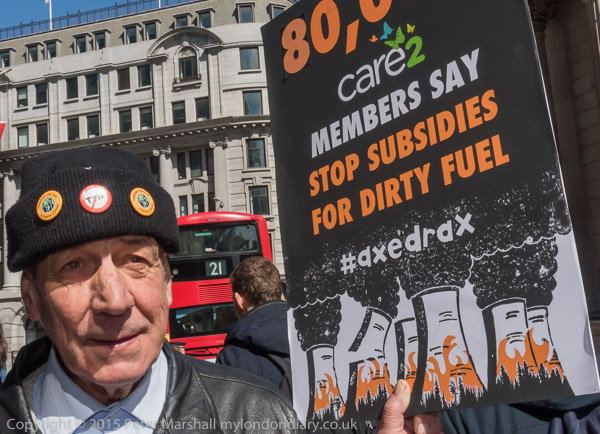
It get subsidised by the UK Government as part of the plan to decarbonise electricity generation despite the evidence from scientists around the world that the burning of forest wood for energy increases carbon emissions and is incompatible with the attempt to limit global warming to 1.5°C.
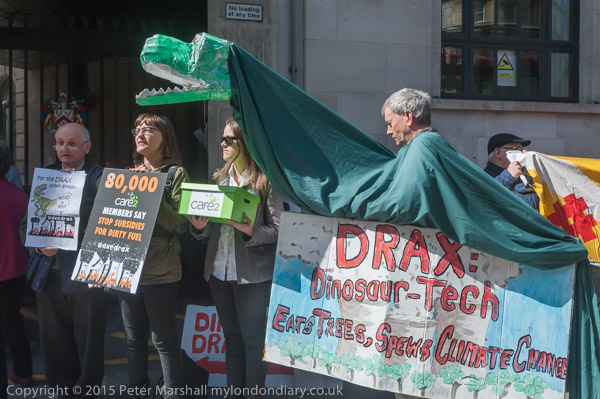
The subsidies that Drax receives increase our electricity bills and should be going to expand truly renewable energy sources such as wind, wave and solar energy. Instead they are paying Drax to pollute and pay out large dividends to their shareholders.
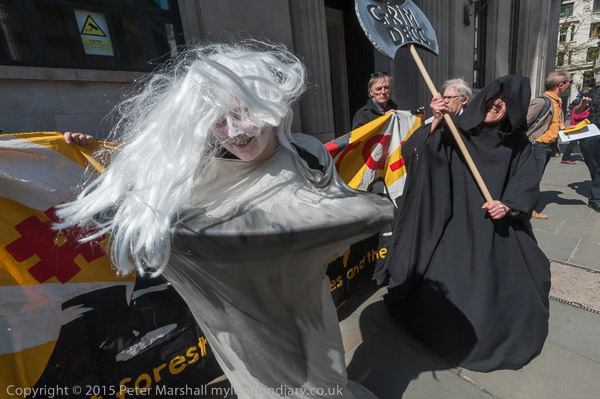
Sourcing the wood to burn at Drax – and for them to sell to other wood-burning plants is also a social and environmental disaster. Much of the wood comes from Drax’s pellet mills using large mmonoculture pine plantations in Southeastern USA, large sterile forest areas with little or no wildlife which have been expanded greatly in area, in part by the total clearance of areas of ancient forest.
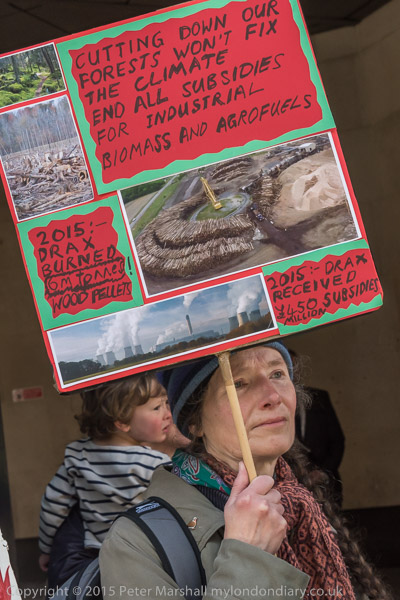
Also in the USA, Drax buys pellets from Enviva, the world’s largest pellet producer which has come under criticism for its clearcut felling of US coastal hardwood forests.

Drax has also been criticised by environmentalists for its clear cutting of ancient forests in Canada, and its Portuguese supplier of pellets has been found to have sourced trees from nature reserves. And logging for wood pellets for Drax is also destroying ancient forests in Estonia and Latvia.
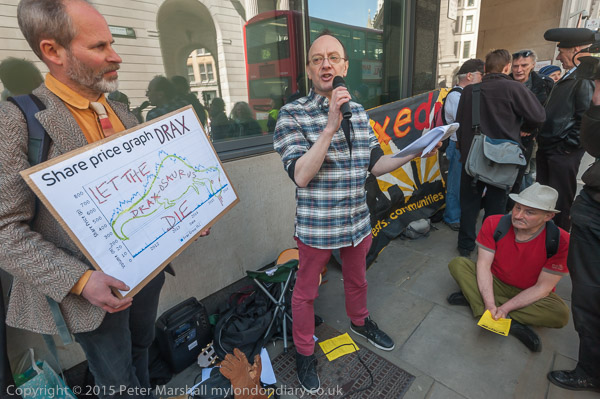
The amount of wood burned at Drax is huge – 6.4 million tonnes in 2022 – and will have involved the cutting down of twice that mass of trees. It is more than the entire UK wood production – but only supplies less than one hundredth of our energy needs.
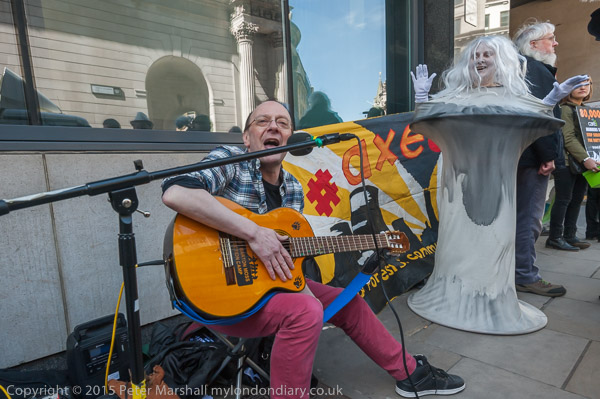
Drax is now attempting to claim further subsidies for its BECCS (Bioenergy With Carbon Capture And Storage) project which seems very unlikely to be able to capture any significant amount of its huge annual CO2 output. It would obviously be far better simply to stop burning wood and turn to truly renewable power sources.
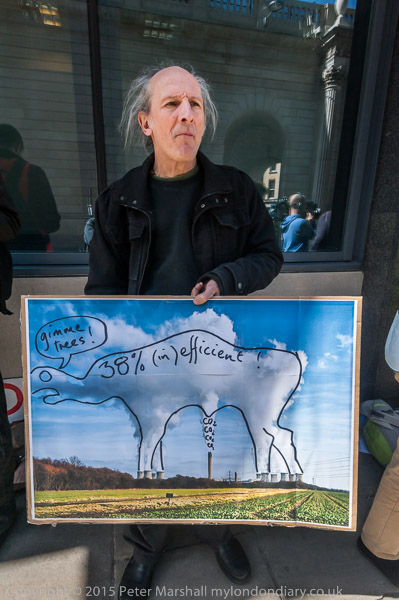
The protest in 2016 was organised by Biofuelwatch on whose web site you can find more a detailed briefing about Drax and why it is vital to end the subsidies for its polluting and environmentally destructive activities.
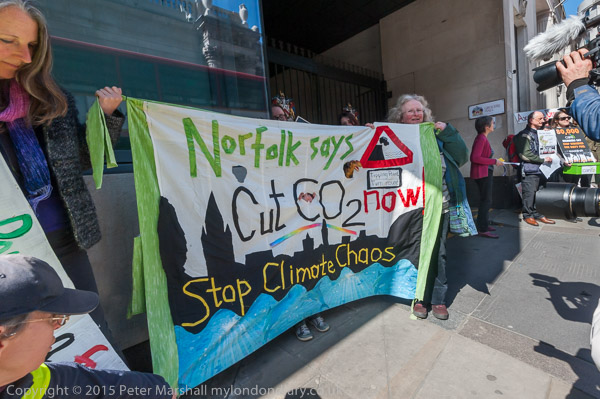
You can find information on the Axe Drax page about the trial of the #DRAX2 arrested after paint was sprayed on the government department supporting the subisdies to Drax – it begins at Southwark Crown Court on April 22nd 2024. And on August 8-13th 2024 Reclaim the Power is holding a mass protest camp for climate justice “targeting Drax – the biggest emitter in the UK, the world’s biggest burner of trees and a key driver of environmental racism.”
Flickr – Facebook – My London Diary – Hull Photos – Lea Valley – Paris
London’s Industrial Heritage – London Photos
All photographs on this page are copyright © Peter Marshall.
Contact me to buy prints or licence to reproduce.
